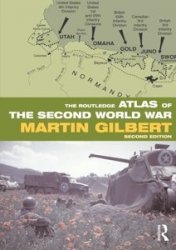Praxis (from Greek noun: action) as an analytical category has very deep roots in western philosophy. Aristotle saw three basic forms of human activity: theoria (the act of ‘seeking to understand’), poiesis (action to produce things), and praxis (action with an end in itself, e. g., politics or ethics). These distinctions were important to Georg Hegel’s early nineteenth-century formulations of dialectical reasoning, and from there became a key influence on Karl Marx. Marx rejected Hegel’s effort to unify practical and theoretical knowledge. Instead, Marx emphasized the transformative nature of action, and the privileging of action over theory. The Marxist definition of praxis emphasizes the creative actions of human beings, once they are freed from the everyday labor needed for survival, and became a key concept for twentieth-century Marxist theoreticians such as Antonio Gramsci. The commitment of mid-twentieth-century Marxist scholars to viewing praxis as a key element of revolutionary action is very different, however, from the average late twentieth-century anthropologist’s view of praxis as a term for something as politically neutral as ‘social action’ (see Marxist Archaeology).
It was in the early 1980s that such concerns entered anthropological discourse. Anthropologists began to turn away from the dominant schools of cultural ecology, structural Marxism, and symbolic anthropology. Instead, and perhaps in tandem with the postcolonial movement in literary fields, anthropologists began to question many of their own analytical assumptions. This has led to strong interest in ideas of how individuals in a society use strategy to manipulate, and live within social boundaries. These types of concerns can variously be seen as related to practice and agency, areas where the work of sociologists like Pierre Bourdieu and Anthony Giddens, as well as the anthropologist Marshall Sahlins, have provided very useful models. Practice theorists envision human actors, as individuals, playing a significant role in their own lives. This is not to deny the role of social systems, which affect, and even oppress individual actions. Practice theorists are interested in this interplay between systems and individuals. There is an assumption on the part of such theorists that people neither blindly follow rules and norms, nor do they have complete freedom to choose their actions. Instead, rules and norms are created and reinforced through peoples’ actions in an endless re-evaluation. This always involves power relations between different groups in society.




 World History
World History









